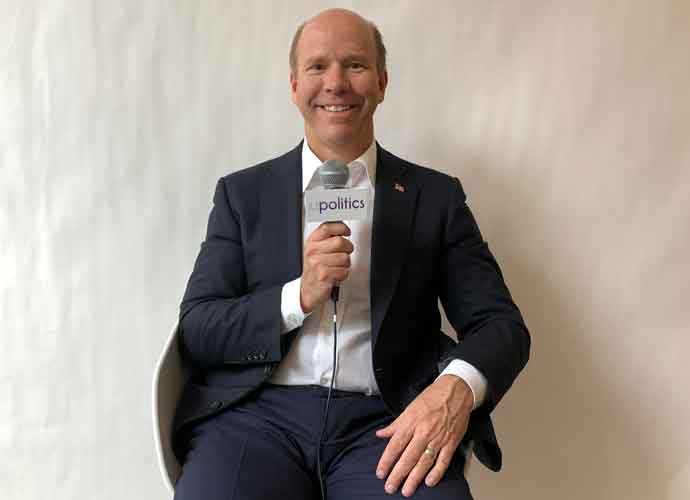VIDEO EXCLUSIVE: Democratic 2020 Presidential Candidate John Delaney On Fighting Climate Change
Scientific experts and many lawmakers have stressed that climate change is an issue that should be addressed as a top priority, and Rep. John Delaney (D-Maryland) agrees.
The 2020 Democratic presidential candidate explained to uPolitics exclusively his three-part plan for combatting global warming.
“The first thing I would do — and I believe I could get this done in my first year as president — is I would pass a very large carbon tax,” said Delaney. “I [would] take all the money generated from the carbon tax and I’d give it back to the American people in a dividend.”
Delaney added this would change attitude toward climate change “dramatically” over the next few years, and revealed that Columbia University has projected his plan would help reduce greenhouse gas emissions by a stunning 92 percent.
President Donald Trump‘s administration has famously denied scientific reports that warn of the growing threat of climate change.
SLIDESHOW: TOP DEMOCRATS RUNNING FOR PRESIDENT IN 2020
The Maryland Democrat went on to say that their would likely be bipartisan support for a bill that included a carbon tax, as he personally knows many Republicans who would back this effort, especially GOP lawmakers who live in “coastal states” that are at risk of suffering the effects of climate change the soonest.
“The second thing I would do is a five-fold increase in the Department of Energy research budget,” Delaney continued. “Right now, we spend $6 billion a year on basic energy research, I want to spend 30 [billion] over ten years, that’s a moonshot around energy innovation because we fundamentally need new technologies in storage and transmission if we ever want to get to net zero.”
“The third thing I would do is create a market for things called ‘negative emissions technologies.’ These are machines that currently exist and [that] suck carbon out of the atmosphere. I know it sounds [like] science fiction, but it actually works,” he said.
Delaney observed the primary issues with these types of technologies are their high cost and their “sub-scale” nature, and that the private sector should take initiative in solving these problems. He noted the example of wind and solar power, which have become increasingly low cost and effective over time thanks to major corporate investment.
Delaney said he would help launch an “auction” of sorts for the federal government to purchase carbon from companies that extract it from the atmosphere.
The Maryland Democrat said net emissions by 2050 would be a main goal of his administration, but that reaching such a target would be very difficult as long as carbon, a major greenhouse gas, remained in large proportions in the atmosphere.
Get the most-revealing celebrity conversations with the uInterview podcast!





 Click here for the 10 Most Powerful Political Couples Slideshow
Click here for the 10 Most Powerful Political Couples Slideshow



Leave a comment